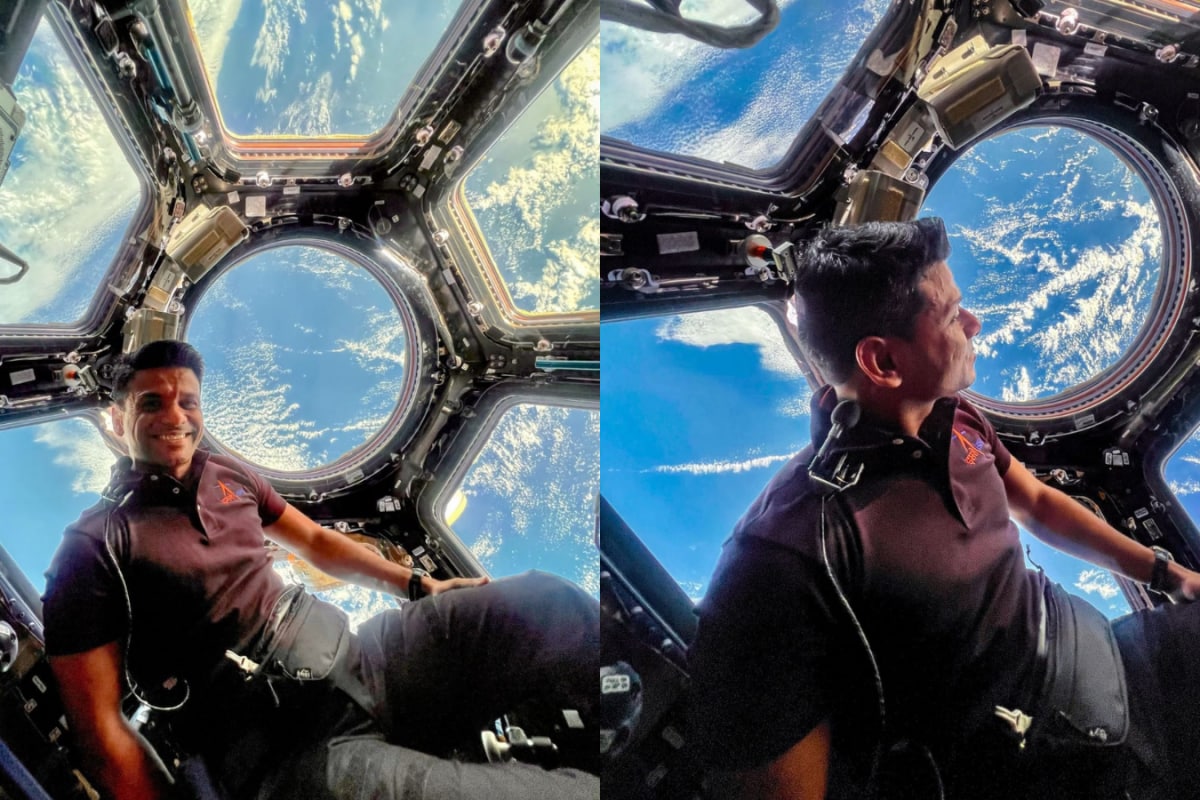

Shubhanshu Shukla is making headlines as he embarks on a journey to the International Space Station (ISS) as part of the Axiom-4 (Ax-4) mission. This mission marks a significant milestone for India, representing its return to human spaceflight after a gap of over 40 years. Shukla's presence on the mission underscores the growing international collaboration in space exploration and the increasing opportunities for various nations to participate in low Earth orbit activities.
The Ax-4 mission, operated by Axiom Space in partnership with SpaceX and NASA, launched on June 25, 2025, aboard a SpaceX Falcon 9 rocket. The mission utilizes the Crew Dragon Grace spacecraft to transport the crew to the ISS. The crew consists of commander Peggy Whitson, pilot Shubhanshu Shukla, and mission specialists Sławosz Uznański-Wiśniewski from Poland, and Tibor Kapu from Hungary. This mission is particularly significant as it marks the first government-sponsored human spaceflight in over four decades for India, Hungary, and Poland, with each nation having previously sent one astronaut to space as part of the Soviet Union's Interkosmos program.
Shukla's role as the mission pilot involves actively participating in various scientific experiments and studies during the 14-day mission on the ISS. These experiments span a wide range of fields, including bone health, radiation exposure, muscle regeneration, and plant growth. Specifically, Shukla is involved in studies examining how bones react to microgravity, which could lead to better treatments for osteoporosis on Earth, and monitoring radiation exposure to improve astronaut protection on future long-duration missions. He is also participating in a microgravity experiment involving tardigrades to gain insights into the biological mechanisms that make these organisms resilient in extreme environments, potentially leading to therapeutic applications. Furthermore, Shukla is conducting a myogenesis study to explore the effects of microgravity on human muscle regeneration.
The mission's scientific agenda is extensive, encompassing around 60 scientific studies and activities representing 31 countries. These activities aim to advance microgravity research in low Earth orbit and include portfolios led by the U.S., India, Poland (in partnership with ESA), and Hungary. The research conducted during the Ax-4 mission could lead to breakthroughs in cancer treatment, understanding DNA repair, and advancing manufacturing techniques.
Beyond the scientific experiments, the Ax-4 mission holds great importance for India's space program. The mission serves as crucial preparation for India's Gaganyaan program, which aims to send Indian astronauts to space using indigenous technology. The experience and knowledge gained from the Ax-4 mission will directly contribute to India's future space endeavors and strengthen the country's position in global space exploration.
The successful docking of the Dragon capsule with the ISS on June 26, 2025, marked Shukla's entry into the ISS, making him the first Indian to visit the station. This achievement follows Rakesh Sharma's pioneering mission in 1984, making Shukla only the second Indian to travel to space.
The Ax-4 mission is not only a scientific endeavor but also a step towards building the next generation of space stations. Axiom Space plans to launch its first space station module in 2027 and eventually detach it from the ISS to become a free-floating lab in 2030. This mission and the previous Axiom Space missions serve as crucial dress rehearsals for future space station construction and operations. Furthermore, Axiom Space and India's Skyroot Aerospace have signed an agreement to collaborate on expanding access to low-Earth orbit, indicating a long-term vision for international cooperation in space.